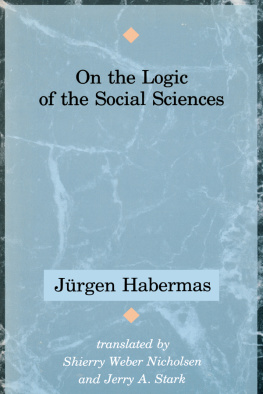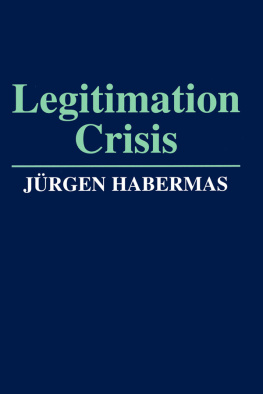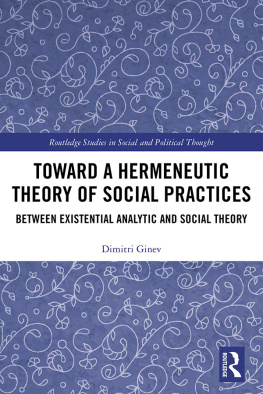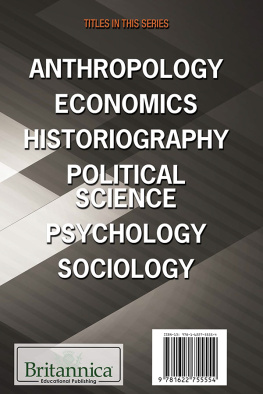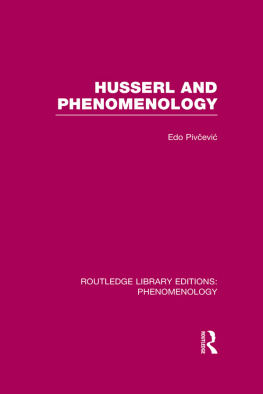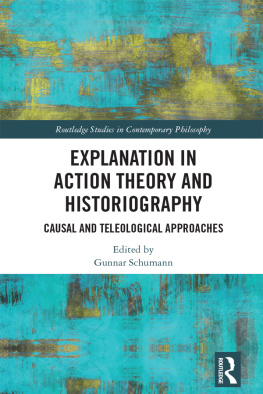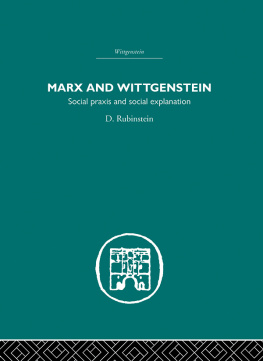
This translation copyright 1988 Massachusetts Institute of Technology
This work originally appeared in German as a special supplemental volume of the journal Philosophische Rundschau in February 1967. It was published in book form in the volume entitled Zur Logik der Sozialwissenschaften 1970 Suhrkamp Verlag, Frankfurt am Main, Federal Republic of Germany
First published in Great Britain 1988 by Polity Press in association with
Basil Blackwell
First published in paperback 1990
Editorial office:
Polity Press, 65 Bridge Street,
Cambridge CB2 1UR, UK
Marketing and production:
Basil Blackwell Ltd
108 Cowley Road, Oxford OX4 1JF, UK
All rights reserved. Except for the quotation of short passages for the purposes of criticism and review, no part of this publication may be reproduced, stored in a retrieval system, or transmitted, in any form or by any means, electronic, mechanical, photocopying, recording or otherwise, without the prior permission of the publisher.
This book is sold subject to the condition that it shall not, by way of trade or otherwise, be lent, resold, hired out, or otherwise circulated without the publishers prior consent in any form of binding or cover other than that in which it is published and without a similar condition including this condition being imposed on the subsequent purchaser.
ISBN 0 7456 0541 9
ISBN 0 7456 0862 0 (pbk)
British Library Cataloguing in Publication Data
A CIP catalogue record for this book is available from the British Library
Introduction
Thomas McCarthy
When it first appeared in 1967, On the Logic of the Social Sciences challenged the existing division of labor between the sciences and the humanities: While the natural sciences and the humanities are able to live side by side, in mutual indifference if not in mutual admiration, the social sciences must resolve the tension between the two approaches and bring them under one roof. At that time discussions of the methodology of science were still dominated by logical positivism. Kuhns pathbreaking work, published a few years earlier, had only begun to make itself felt among philosophers of natural science; in the philosophy of social science it was, and was to remain for some time to come, only a distant rumbling. Thus Habermass main concern was to challenge the hegemony of empirical-analytical conceptions of social science, to show, in particular, that access to the symbolically structured object domain of social inquiry called for procedures similar in important respects to those developed in the text-interpreting humanities. In making this point, he was already able to draw upon insights developed in the phenomenological (Schutz), ethnomethodological (Garfinkel, Cicourel), linguistic (Wittgenstein, Winch), and hermeneutic (Gadamer) traditions, and on this basis to mount an argument that anticipated in all essential respects the subsequent decline of positivism and rise of interpreti vism.
If this were all there were to the story, On the Logic of the Social Sciences would be primarily of historical interest as a striking anticipation of contemporary developments. But there is more. Habermas argued just as forcefully against swinging to the opposite extreme of hermeneutic idealism, which has since achieved something of a counterhegemony in the philosophy of social science (but not, of course, in the practice of social research). The point wasand isto bring explanatory and interpretive approaches under one roof, as Max Weber had already seen. Thus we have here not only an anticipation of the retreat of positivism, but a critique-in-advance of the absolutizing of interpretive approaches that followed. If social research is not to be restricted to explicating, reconstructing, and deconstructing meanings, we must somehow grasp the objective interconnections of social actions, the meanings they have beyond those intended by actors or embedded in traditions. We must, in short, view culture in relation to the material conditions of life and their historical transformation.
With this in mind, Habermas goes on here to examine functionalist approaches, in particular, the structural-functionalism of Talcott Parsons. He finds that the attempt to conceive of the social system as a functional complex of institutions in which cultural patterns are made normatively binding for action does furnish us with important tools for analyzing objective interconnections of action; but it suffers from a short-circuiting of the hermeneutic and critical dimensions of social analysis: In the framework of action theory, motives for action are harmonized with institutional values. We may assume, however, that repressed needs which are not absorbed into social roles, transformed into motivations, and sanctioned, nevertheless have their interpretations. Either these interpretations Overshoot the existing order and, as Utopian anticipations, signify a not-yet-successful group identity; or, transformed into ideologies, they serve projective substitute gratification as well as the justification of repressing authorities. Habermas argues that if the analysis of social systems were fully to incorporate these dimensions, it could no longer be understood as a form of empirical-analytical science on the model of biology; it would have to be transformed into a historically oriented theory of society with a practical intent. The form such a theory would take is that of a systematically generalized history that reflectively grasped the formative process of society as a whole, reconstructing the contemporary situation with a view not only to its past but to its practically anticipated future as well. This is, in fact, what the classical social theorists were afterfrom the natural history of civil society of the Scottish moralists, through Marxs historical materialism, to Webers theory of rationalization. And yet, Habermas maintains, they were unable to grasp the methodological specificity of such a theoretically informed and practically oriented history; instead, they tried repeatedly, and in vain, to assimilate it to the strictly nomological sciences ornature.
Habermas finds in psychoanalysis the most suggestive model for reconceptualizing and reintegrating the explanatory and interpretive, functionalist and narrative elements required for social theory. Anticipating the extended discussion of Freud in Knowledge and Human Interests (which was published in the following year), he views psychoanalytic theory as a general interpretive scheme of psychodynamic development, whose application to the narrative reconstruction of individual life histories calls for a peculiar combination of interpretive understanding and causal explanation, and whose corroboration depends in the last analysis on the successful continuation of those same life histories. In an analogous way, critical social theory undertakes a narrative reconstruction of the self-formative process of society, with a view to its successful continuation: In place of the goal-state of a self-regulating system, we would have the end-state of a formative process. A hermeneutically enlightened and historically oriented functionalism is guided by an emancipatory cognitive interest that aims at reflection. The species too constitutes itself in formative processes, which are sedimented in the structural change of social systems, and which can be reflected, that is, systematically narrated from an anticipated point of view.
Since publishing

